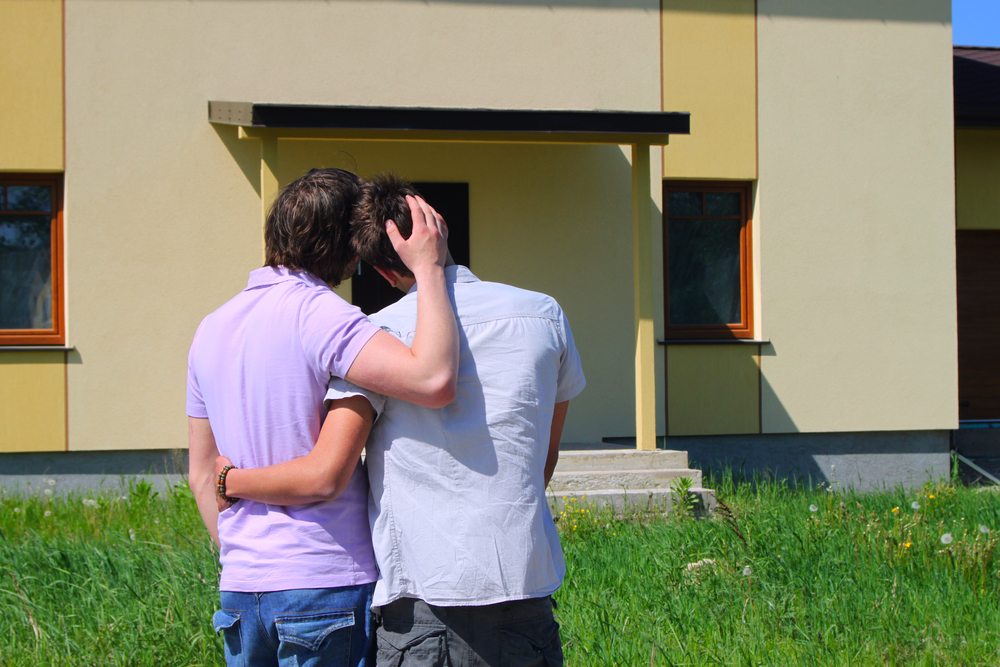
Photo credit: Shutterstock
Before the June 2015 decision to legalize gay marriage, there were still homosexual couples who lived together and pooled their incomes and owned homes. They existed across the country. But LGBT homeowners were at a massive disadvantage, with no access to the legal property protections of marriage, or to the tax benefits.
Before legalization, homosexual couples had to file taxes singly, which meant a shared home was a complicated burden. In the case of death, even the most ideal form of home-ownership (joint rights of tenancy with survivorship) could be contested and made horrific by the deceased’s family.
In 2012, a law passed that made it illegal to discriminate against renters or buyers based on their marital status, but a study a year later by none other than the U.S. Department of Housing and Urban Development showed that LGBT couples got far fewer responses from landlords or house sellers than did straight couples.
That discrimination is not gone, not by far. But the practical, paperwork concerns in owning a home were both wiped out by legalization. Both people in a married couple buying a home are automatically given the status “tenancy by the entirety,” and they get to file jointly, getting the full gains allowance from their property.
The result? More and more LGBT couples are buying homes. And that’s a big deal. Queer people have traditionally been over-represented below the poverty line, but owning one’s own home is one of the most effective ways to grow capital. The purchase is a huge hurdle, there’s no denying that, but the lifelong benefits are vital. And the benefits aren’t just financial, either.
Owning versus renting is a part of the decision-making rubric of adoption agencies. Schools near more single-family-homes than apartments tend to be better.
There are many flaws in the traditional American dream. But owning the walls around you is a powerful feeling, and one denied to the LGBT community for far too long.
